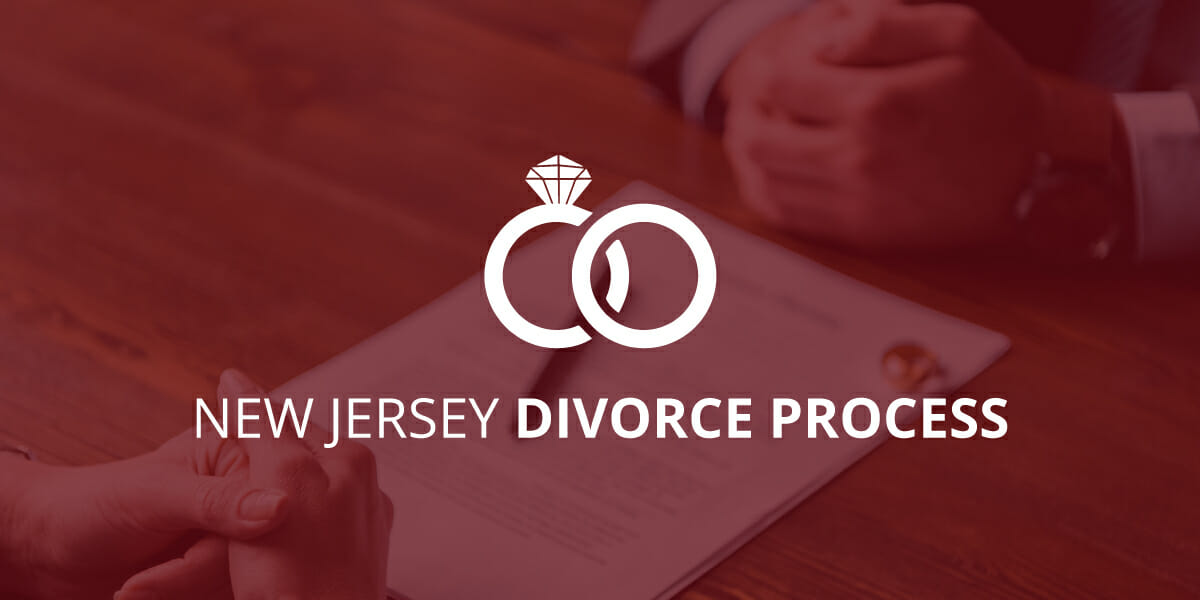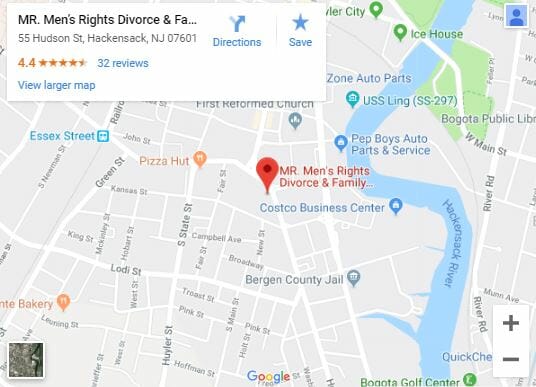
For millions of Americans, divorce is a reality of life. No matter what your intentions may have been when you entered into marriage, something changed — and you know that the marriage cannot be saved.
The process of divorce can be incredibly stressful. Not only are you dealing with the break up with your family, but you may also be facing the possibility of losing time with your children and taking a financial hit. For men, these worries are often amplified by the perception that judges favor women and mothers in divorce proceedings.
Fortunately, this is no longer the case. Under New Jersey law, mothers are not presumed to be better or more capable parents, and women are not automatically entitled to alimony or a larger share of marital assets.
Grounds for Divorce in New Jersey
Under New Jersey law, you can get divorced using either fault or no-fault grounds. The difference between the two is that with “fault” divorces, one party assigns blame for the divorce to the other party. For example, if your wife has cheated on you, you may have grounds for divorce on the basis of adultery.
Most New Jersey divorces are no-fault. Typically, “irreconcilable differences” is the grounds for a no-fault divorce. In the past, the only way that you could get a no-fault divorce is through separation for a period of 18 months or longer. With the addition of irreconcilable differences as grounds for divorce, you now only need to show that there has been a breakdown of the marriage for 6 months or more, which makes it appear that there is no reasonable prospect of reconciliation.
Potential grounds for divorce include:
- Adultery
- Desertion for 12 or more months
- Extreme physical or mental cruelty
- Separation for at least 18 months
- Addiction or habitual drunkenness
- Imprisonment for 18 or more consecutive months after marriage
- Deviant sexual conduct without the consent of the other spouse
- Irreconcilable differences
To file for divorce in New Jersey, at least one partner must be a resident of the state. This means that either you or your partner must have resided in New Jersey for at least one year prior to filing for divorce. There is an exception to this rule if adultery is the grounds for divorce.
Filing for Divorce
One way to start the divorce process is when one spouse must file a divorce complaint with the court in the jurisdiction where one or both of you live. For example, if you live in Hackensack, the complaint would be filed in the Bergen County Courthouse. If you don’t live in New Jersey, the complaint would otherwise be filed in New Jersey, but in the specific county where your spouse lives.
The grounds for divorce may or may not impact the outcome of your divorce. For example, if your wife is an alcoholic, you can choose to list habitual drunkenness as the grounds for divorce. This will not necessarily affect the financial aspect of your case such as alimony or the division of property, although if you can prove these allegations, it may affect child custody (and as a result, child support).
Importantly, if you file for divorce based on fault, then you will need to prove it. This can add substantial emotional stress and may make the process more lengthy and expensive.
After the divorce complaint is filed with the court, the party who filed it will receive a docket number from the Court. At this point, you must “serve” the docketed complaint and other required documents within a specified time frame to your spouse. Service — or delivery of these papers — must be completed within a specified time frame and proof of service must be provided to the court.
There is a list of approved methods of how you can serve the papers onto your spouse. If you have hired a Bergen County divorce lawyer to represent you, we will handle all aspects of drafting, filing, and serving the divorce complaint.
What Happens After a Divorce Complaint Is Filed
After a divorce complaint has been filed, the other party (you or your spouse) has 35 days to respond or answer it. If there is no response, then the court may grant the divorce and make it in order in favor of the plaintiff (the spouse who filed).
There are three ways to respond to a divorce complaint:
- Filing an answer, or a response to the complaint;
- File an answer and counterclaim, which is a response plus any separate claims that the defendant wants to make against the plaintiff; or
- File an appearance, which means that the defendant is not arguing with (contesting) what the plaintiff stated in the complaint, but still wants to be heard on issues of custody, visitation, child support, division of property, and/or alimony.
The answer, answer and counterclaim, or appearance must be filed with the court and served on the defendant. The divorce case is now underway.
Each party in the divorce must also file a Case Information Statement, or CIS. This document is incredibly important, as it is an itemized and detailed list of information that will be used to decide your case, such as your income, assets and liabilities, as well as your standard of living and income history. At this point, there may be a number of issues that must be resolved before a divorce can be granted. Typical issues in New Jersey divorce cases include:
- Child custody
- Visitation
- Child support
- Alimony
- Equitable distribution (division of property)
In some cases, these matters can be resolved through mediation and extensive negotiation. In other situations, the case may go through an extensive court process that ends in a trial.
Discovery in New Jersey Divorce Cases
The CIS provides a fair amount of information to each party. But, in all cases, each party is entitled to gather more information about the case through a process known as discovery. In discovery, both the plaintiff and the defendant will be able to ask for documents and other evidence and information and will be required to provide the same to the other side.
In New Jersey, there four types of discovery that may occur:
- Depositions: This involves one party taking the testimony of an expert, the other party, or a witness, under oath. Importantly, depositions are not permitted for matters related to the grounds for divorce.
- Interrogatories: These are written questions that the other spouse must answer under oath; these questions can be about any relevant issue.
- Notices to Produce: one party can ask the other to produce documents for inspection, such as tax returns, insurance policies, and business records.
- Requests for Admissions: a party can request or deny facts or statements regarding the case.
In addition, parties may ask for an appraisal of certain property during the divorce process or a valuation of a business that one spouse may have an interest in.
The discovery process can be lengthy. However, it can also help to clarify the issues in a case. For example, if your spouse lists that she has credit card debt but you have never known the details, this would be your opportunity to see all of the credit card statements to get educated. Attempting to Settle the Case
After the divorce complaint has been filed and the defendant answers it and CIS’s are exchanged, both parties and their attorneys will begin to talk about resolution of the issues. There will be Case Management Conferences with the Court along the way and even maybe scheduling mediation sessions with a neutral qualified mediator.
Mediation is a form of alternative dispute resolution (ADR) where a neutral third party, known as the mediator, hears each party’s position and/or their attorneys, and then makes a recommendation on how to settle the case. Mediation in New Jersey divorce cases is non-binding, which means that if the parties do not agree to the mediator’s recommendations, then they are not required to accept them. But, you better be careful because at some point, the Court will not let everyone engage in indefinite mediation; the Judge will step in and set the case down for a trial where the Judge will have to make the call.
Before that, however, the Court will require all parties to attend an Intensive Settlement Conference (ISC) in the courthouse. This gives the parties one last opportunity to reach a settlement before trial and is required before a trial will be held.
The judge assigned to your case may oversee the ISC or the Judge may assign it out to a different Judge in the Courthouse. This intensive settlement conference is done inside the courthouse and could last for as little as a few hours or as long as an entire day! If you achieve a settlement at the ISC, then the attorneys will prepare an Agreement for everyone to sign that confirms the terms agreed upon and tell the Judge that we need a Court date to enter the Divorce.
New Jersey Divorce Trials
If the parties cannot come to an agreement on all of the issues, then the case will proceed to trial and the Judge will have to make the decision. This is the last step in the New Jersey divorce process.
At trial, each side will have an opportunity to make an opening statement, present witnesses and introduce evidence, and give a closing statement. After the trial is over, the court will issue a ruling on the issues. A Final Judgment of Divorce will then be granted. Trials are time consuming, labor intensive, and can be quite expensive. However, they are a necessary evil to enable the parties to get finality once and for all.
New Jersey Divorce Lawyer Discusses Trials
- We do the best we can to try an avoid trial
- You want to try and get a mutual agreement between you and your spouse so a judge who you don’t know, doesn’t decide your case for you.
Questions? Contact Us to Learn More.
The issues in a divorce, plus the procedrual requirements of a divorce can be unnerving and complicated. A Bergen County divorce lawyer can stand by your side throughout the process, helping you settle the case amicably when possible or aggressively advocating your interests when necessary.
MR. Men’s’ Rights Divorce & Family Law of New Jersey by Schultz & Associates is dedicated to helping men with various family law matters, including complex and high net-worth divorces. We will work hard to protect your interests and to resolve the case in a favorable way. To learn more or to schedule a confidential initial case evaluation, call our firm at 201-654-4263 or email us at any time.

